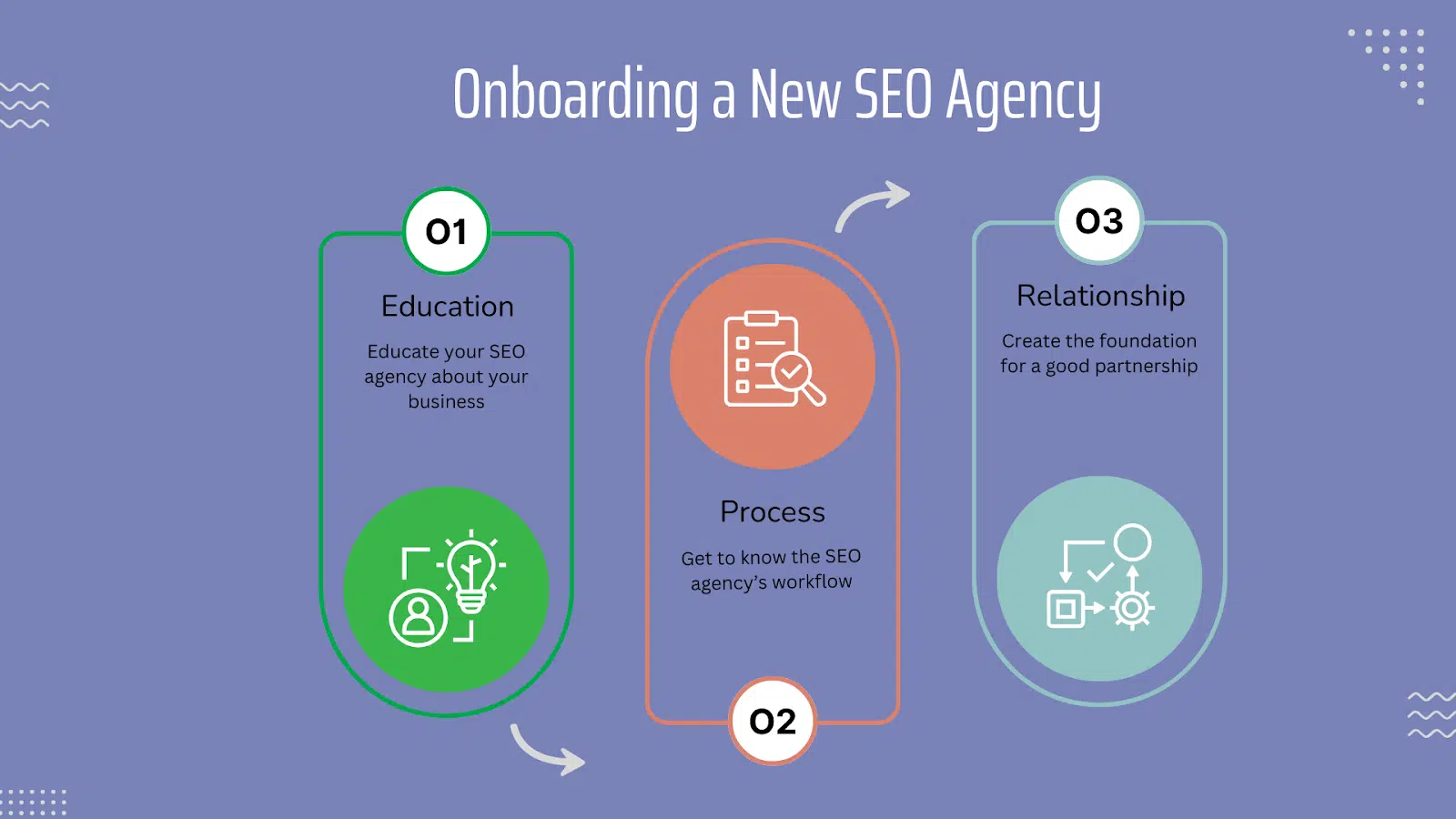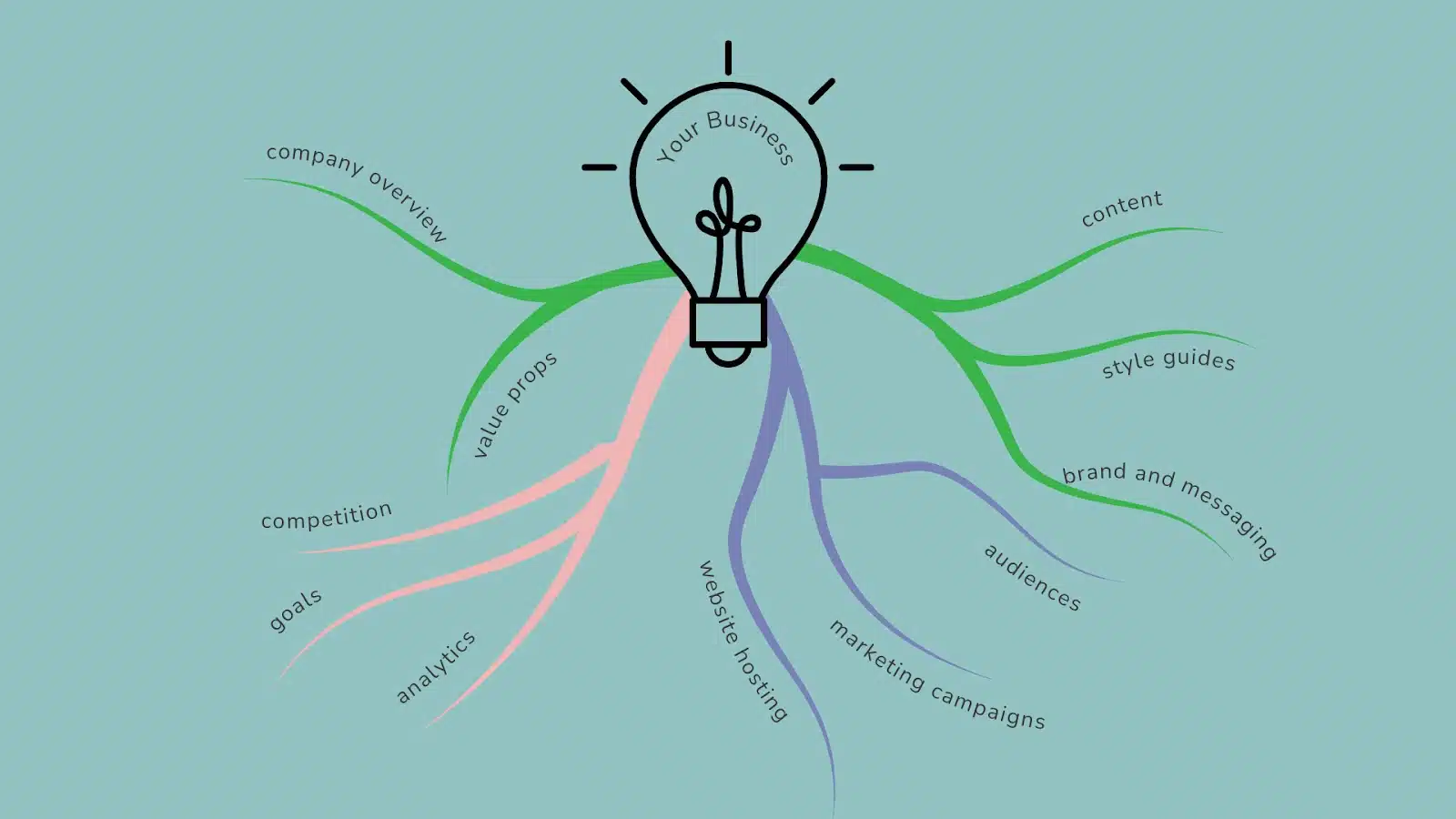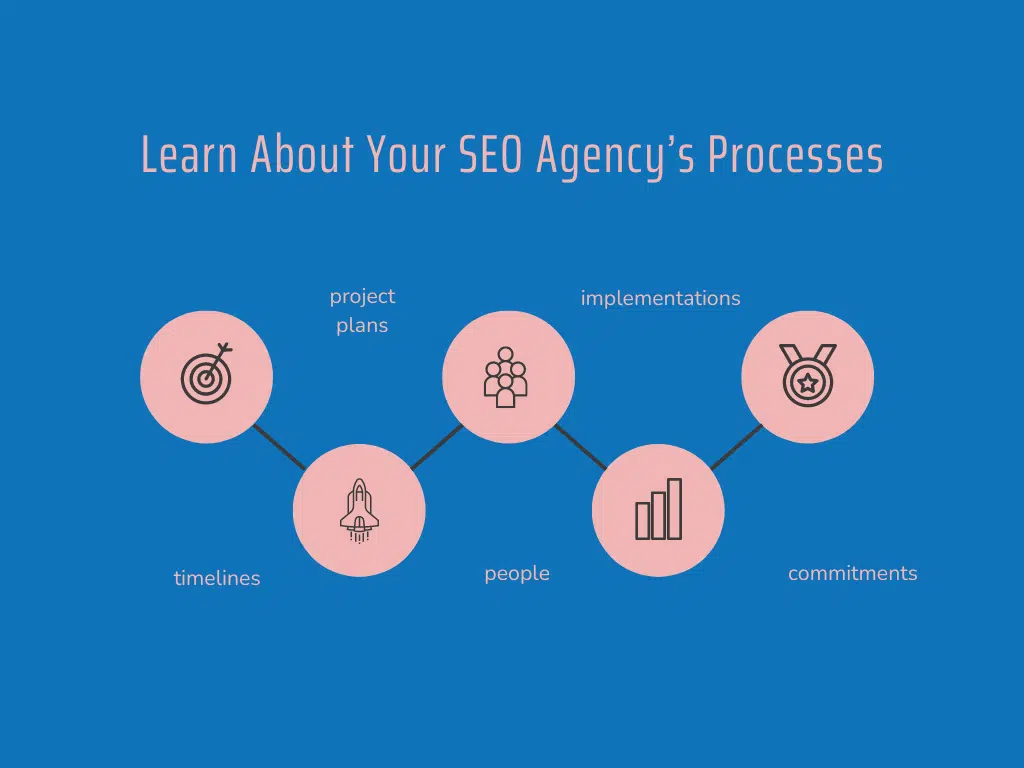[ad_1]
The decision to hire a new SEO agency brings high hopes for what might be achieved together. In these early stages, optimism runs high.
However, successful partnerships require more than just hopeful thinking; you have to put in the work from the start.
Whether it’s your first time or tenth, streamlining the ramp-up period when onboarding a new SEO agency will save you effort in the long run and lay the path to a productive partnership.
This article covers the three things you want to get right when onboarding a new SEO agency:
- Education: Educating your agency about your business.
- Process: Understanding their process, workflow and digital strategy.
- Relationships: Forging a good working relationship with your new agency.


Educate your new SEO agency about your business
Letting the SEO agency into the inner workings of your business paves the way for a successful partnership.
Unfortunately, too many agencies are not integrated in the way they had hoped.
In the research report, “Mad Men to Sad Men,” Hall & Partners looked at the client-agency relationship and found that in many cases, “clients are holding back, not opening up, or sharing the wider agenda.”
The report went on to say:
“There are obviously a few exceptions, where people feel they have established strong, working partnerships. However, even in these instances there is a general acknowledgement that agencies are more inclined to be put in a box, away from the heart of the business.”
Every agency is different, but at my SEO agency, we spend a significant amount of time getting to know the client upfront.
The end product is clear answers on the client’s audience, marketplace, competitors, marketing strategy and history, unique differentiators and success metrics.
Here are some of the points you’ll want to cover when educating your new agency about your business:


Company overview
- Give the 30-second elevator pitch of your business to the people at your new agency. Then go deeper. This introduction is a great way to begin the communication process.
Your team
- Make sure the key people who will be involved in the project have time to meet your SEO agency team.
- Clarify the roles of your team members, and who will implement technical fixes, make design changes or write content, for example.
Value proposition
- What sets you apart from others in your industry selling a similar product or service? What are the value props of individual offerings?
Competition and positioning
- Who are your main market competitors that court the same audience as you do? How do you position yourself as distinct within your industry?
Your current level of SEO knowledge
- Give a brief overview of your current level of SEO knowledge. This will help the agency better understand how to tailor its conversations with you.
- For instance, the SEO agency might decide to take a more informative approach, educating along the way, rather than diving right into technicalities.
Goals and KPIs for your digital marketing
- What goals would you like accomplished through your SEO and digital marketing activities?
- What do you define as project success?
Analytics setup and KPI tracking
- What analytics software is in place to track the accomplishment of your goals and KPIs? What KPIs are you currently tracking?
- I always recommend adding a new metric as a KPI: progress. To help make SEO a priority for your team, implementing an SEO change should be considered a KPI.
Website hosting and CMS
- How and where is your website hosted and content managed? Will your SEO agency have access to the system?
History of marketing campaigns/service providers
- What digital marketing vendors have you used before?
- You don’t have to name names, but it can be helpful to summarize the projects, and what worked and didn’t work; be sure to explain if you’ve ever suffered a traffic loss.
Audience
- Describe everything you know about your customers — demographics, what they value, what they need and want.
- If you have developed personas in the past, now is a good time to share that with your agency.
Brand and messaging
- What does your brand stand for, and what messaging do you use to convey it? Internal marketing materials are handy for your new SEO agency.
Writing style and tone
- What guidelines can you convey to your SEO agency that communicate the tone of the brand? If you have an internal style guide, make sure the agency gets a copy.
Content aspirations
- What do you want your agency to know about the content you’ve created in the past? What do you want them to understand about competitors’ content you’d like to either emulate or avoid?
Any other context
- If there’s anything else of note to convey to your agency, the first few meetings with the agency are the time to do it and don’t hold back.
Dig deeper: How to hire an SEO agency: The definitive guide
Understand the SEO agency’s process, workflow and strategy
Soon after the selection of your agency, you want to become familiar with the inner workings and processes of the company and its SEO team.
This helps set expectations. A well-organized SEO agency will convey these types of details to you initially, but if they don’t, go ahead and ask.
Here are some things to ponder:
- What are the details of the contract?
- What is the timeline for deliverables?
- How often is the project plan updated?
- How often will they be in communication?
- What processes do they have for editing your website?
- How do they offer guidance throughout the process?
- What commitment to service do they make?
- Is your SEO an expert or a junior analyst?


Contract
- It’s always a good idea to go over the details of the contract verbally (even if someone signed it and read it ahead of time). This makes sure there isn’t any confusion about what to expect.
Timelines
- When can you expect to see the project plan, have scheduled calls, and receive audits and reports? Do they run in sprints, or some other project management approach?
- For example, they might outline a phase one project plan that includes a kickoff call, research, SEO audit, findings call, implementation phase, etc.
Project plan updates
- As a living and evolving document, project plans will likely get updated.
- But you want to know the circumstances surrounding the updates, how often it might happen and when.
Communication
- As you think about how you will communicate with your new agency, here are some things to get answers to:
- What is the communication cadence of your agency team members?
- Is there a dedicated point of contact for your project?
- How often can you expect to hear from them?
- How quickly can you expect to get responses from them when needed?
Process for website changes
- How will recommended updates be implemented? Does the agency work through your staff to do so?
Guidance
- Throughout the process of implementing changes, you will have questions.
- Find out if the SEO agency is available to provide labor and resources regarding education, mentoring, spot-checking work, and so on.
Service commitments
- What assurances do they give about meeting your KPIs?
- It’s important to understand that you may not see big results in the first months because SEO takes time to start producing. Have a realistic conversation about this.
SEO analyst experience
- Unfortunately, some agencies hire junior analysts with less experience than the people your business has on its marketing staff.
- It’s worth a conversation to ask who will be assigned to your account. Do not underestimate the frustration level of having a junior person on your team.
- The Hall & Partners research report linked earlier discusses this issue, saying that agency clients are becoming disappointed in the agency talent pool.
- As the report points out, “The value agencies offer has always been in the talent and skills of their people. However, many clients feel agency people no longer have a disproportionate share of the talent.”
Get the daily newsletter search marketers rely on.
Build a good working relationship with your new SEO agency
As your engagement with the new SEO agency continues, you will likely find out that to keep things running smoothly, it’s both give and take.
Strong business relationships are built through communication, a shared understanding and trust.
Let’s first look closer at having a shared understanding of what SEO is.
Understanding SEO
Most enterprise businesses already have a well-stacked marketing team with at least one SEO expert.
But, if you’re a smaller business or you don’t have an in-house SEO already to be the liaison between your business and the agency, seek out SEO education.
This is so you can have more informed conversations with your agency. Yes, it’s time-consuming, but it’s an investment.
At my agency, we offer in-depth SEO training to all our clients regardless of their level of knowledge.
Our thinking is that even if you already have a solid baseline, learning more about our approach can at least be useful.
And, for those clients who do not have a foundation in SEO knowledge, SEO training excites them and allows them to have more informed conversations with the agency.
At the end of the day, the more active and open that a client can be, the more likely they are to:
- Get better results in the end.
- Have a good working relationship with their consultant.
- Learn something they didn’t know before.
- Have faith and confidence in their SEO investment.
- Accelerate their SEO results.
Trusting the agency
At this point, you’ve put a lot of research into finding the right agency. Once you are confident with your choice, it’s time to put your trust in their recommendations.
This is easier said than done.
I’m not talking about “blind faith” (which is another reason why having a basic understanding of SEO is key), but “trust” in the sense of being open to the agency’s recommendations and communicating with them about it.
SEO agencies may not know your business inside and out like you do, but they do know search engines.
For many clients, the process can be uncomfortable, but your agency’s recommendations are no good if you don’t understand them, or worse, don’t “buy in” to them.
That said, SEO agencies are usually happy to present another plan of action if the agency’s recommendations cannot work for any reason.
Any good agency will listen to your recommendations and guidance, too, which is critical when you have SEO experts on staff.
Finally, it’s important to know that project plans can and sometimes have to change based on a variety of factors, such as current events, algorithm updates and competition.
Because of this, businesses are sometimes forced to completely switch their focus and immediate SEO goals based on the advice of the agency.
That said, flexibility is another factor in any good client-agency relationship.
The keys to a good client-agency partnership
Successfully onboarding a new SEO agency involves more than just signing a contract; it’s about establishing a partnership that can lead to significant achievements.
By focusing on the different areas outlined in this article, you’ll have a smoother onboarding experience and the potential for unparalleled SEO success.
Dig deeper: 37 key questions to ask when evaluating digital marketing agencies
Opinions expressed in this article are those of the guest author and not necessarily Search Engine Land. Staff authors are listed here.
[ad_2]





